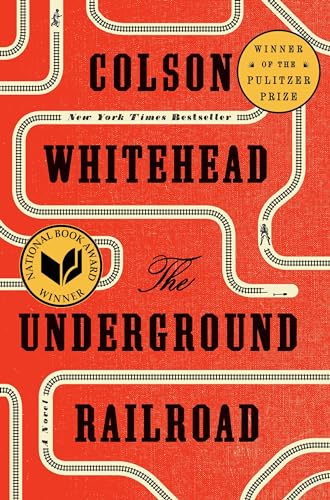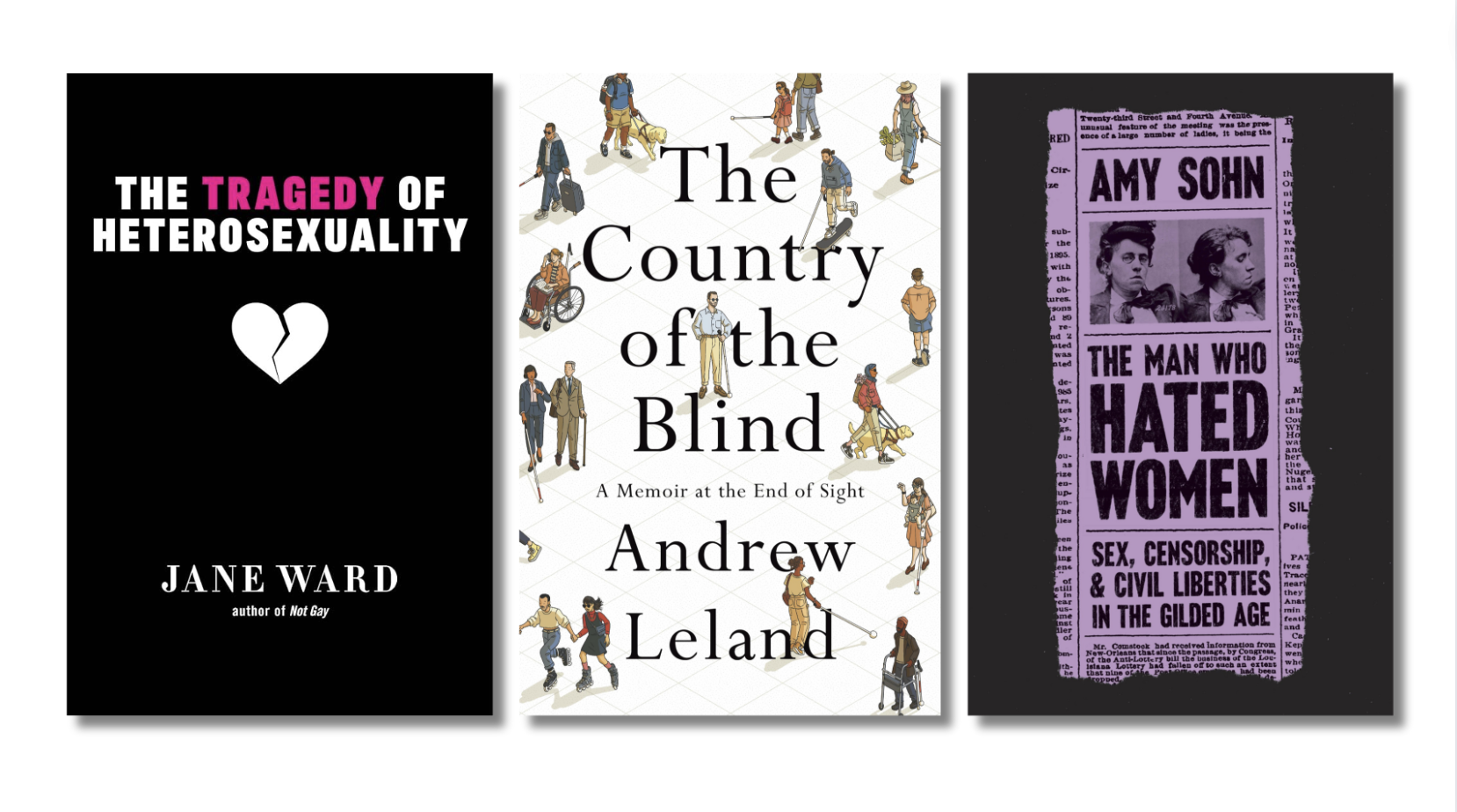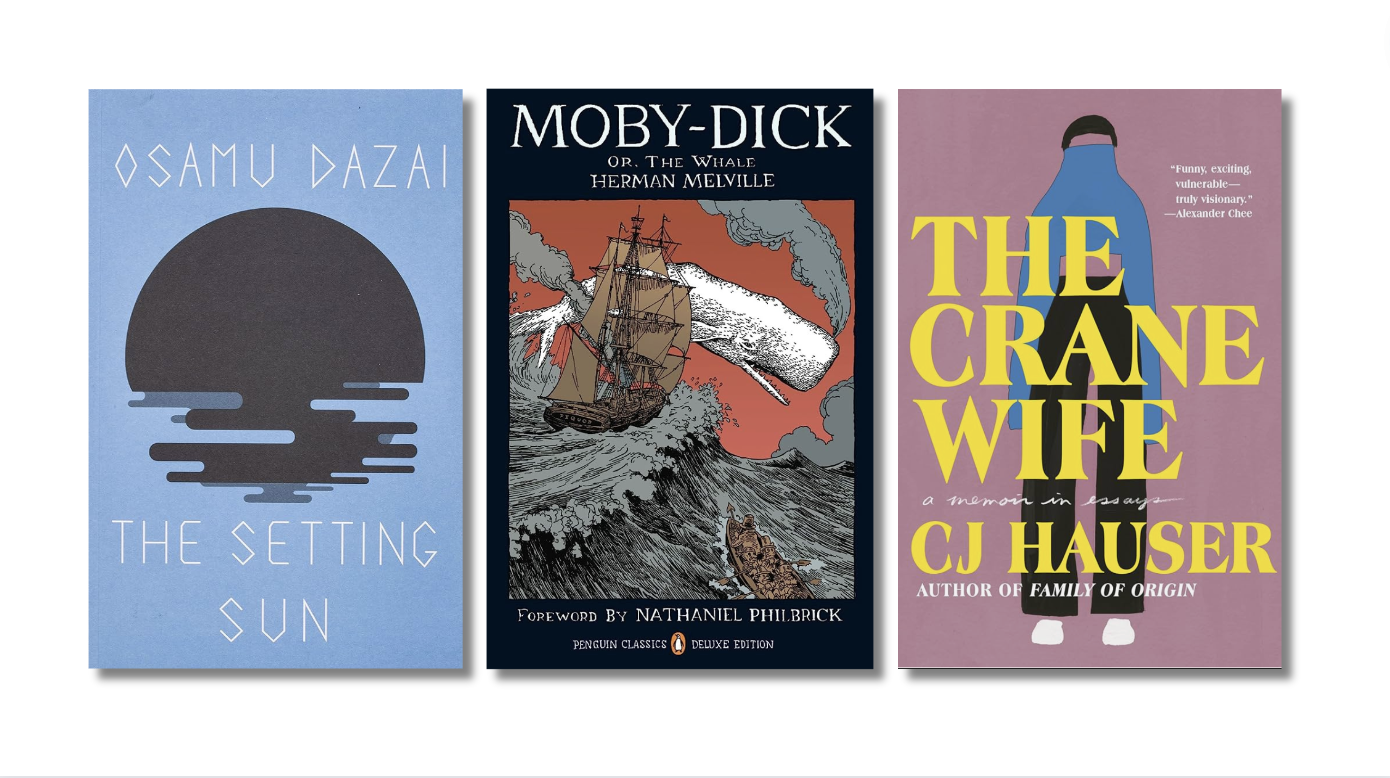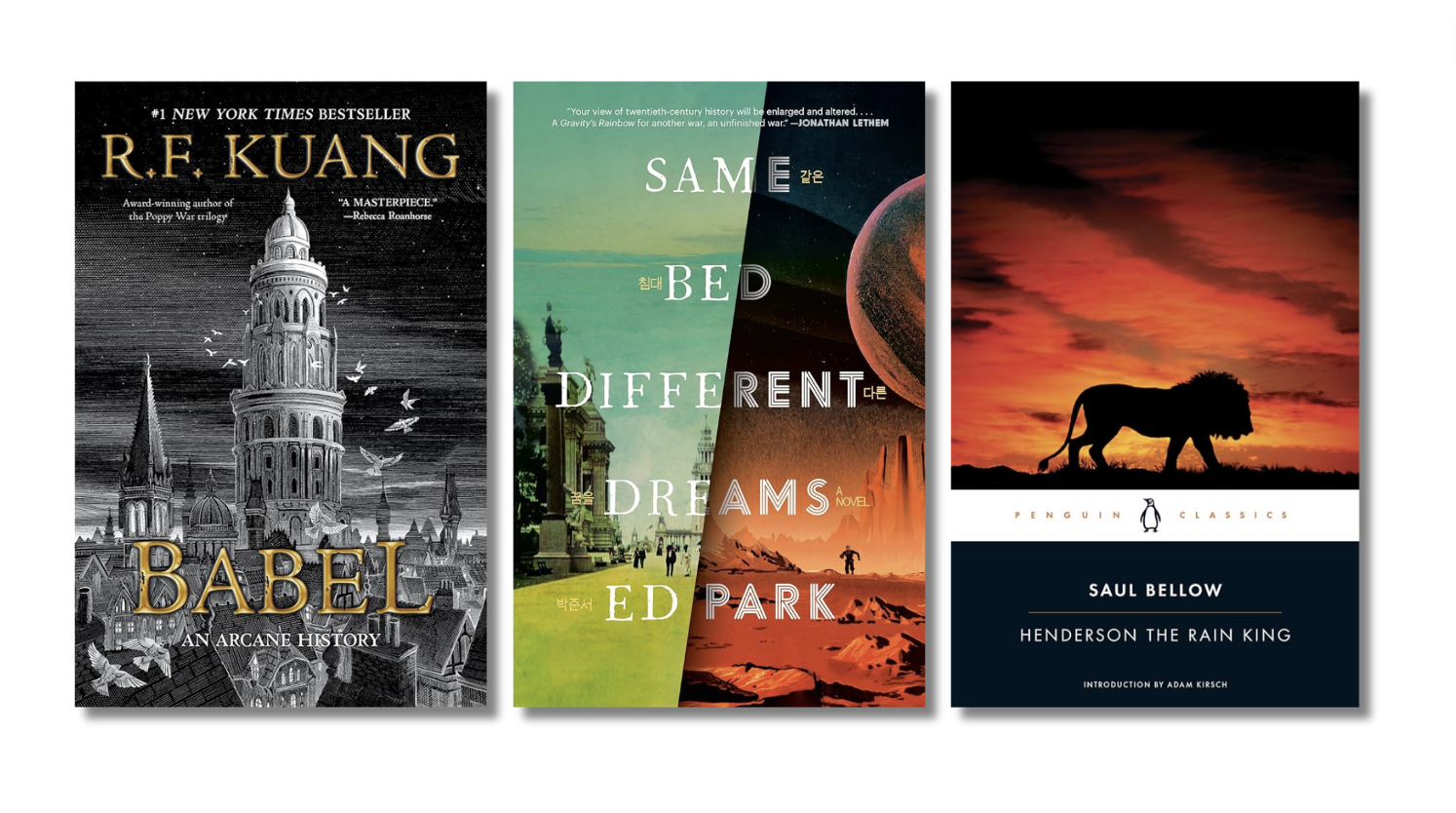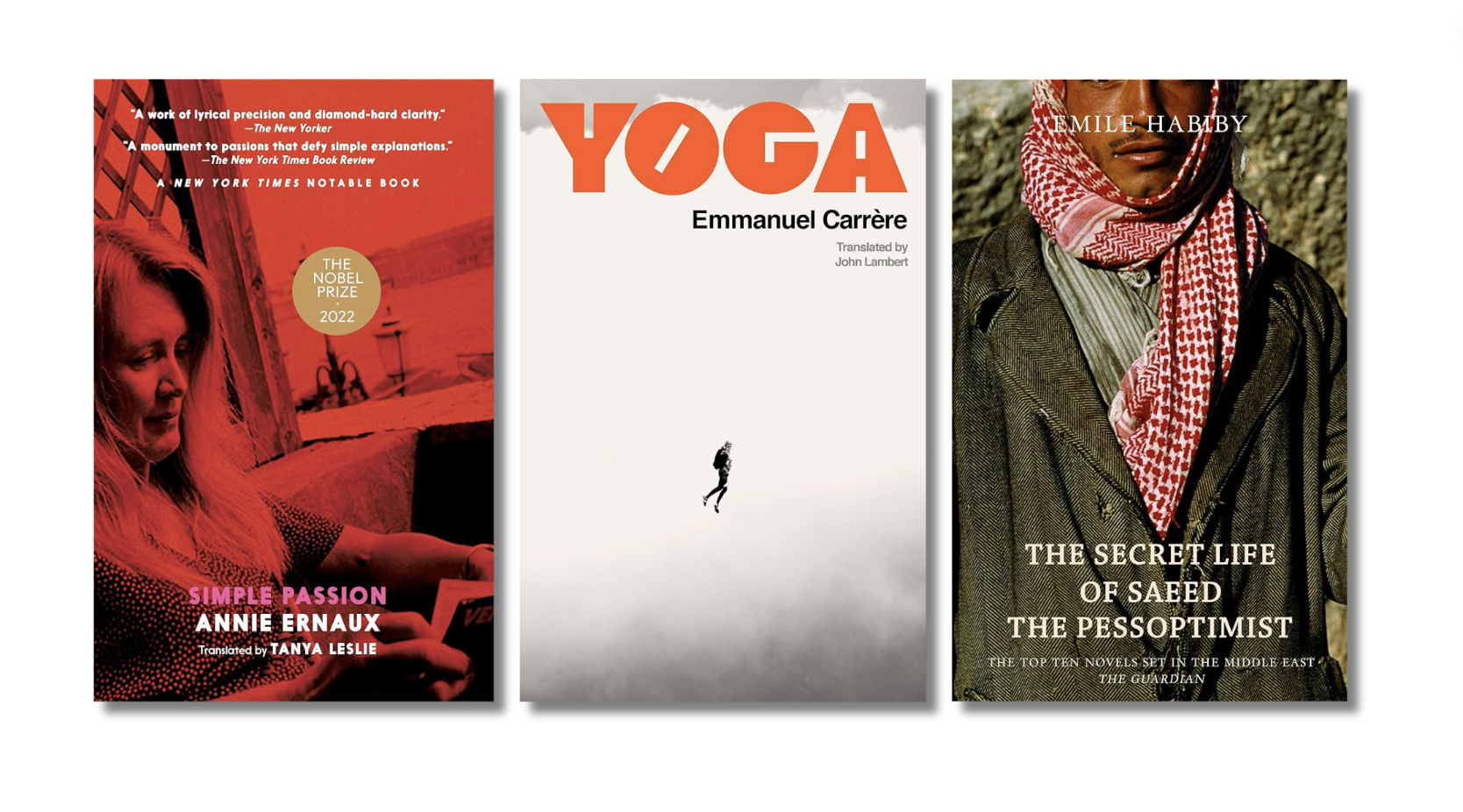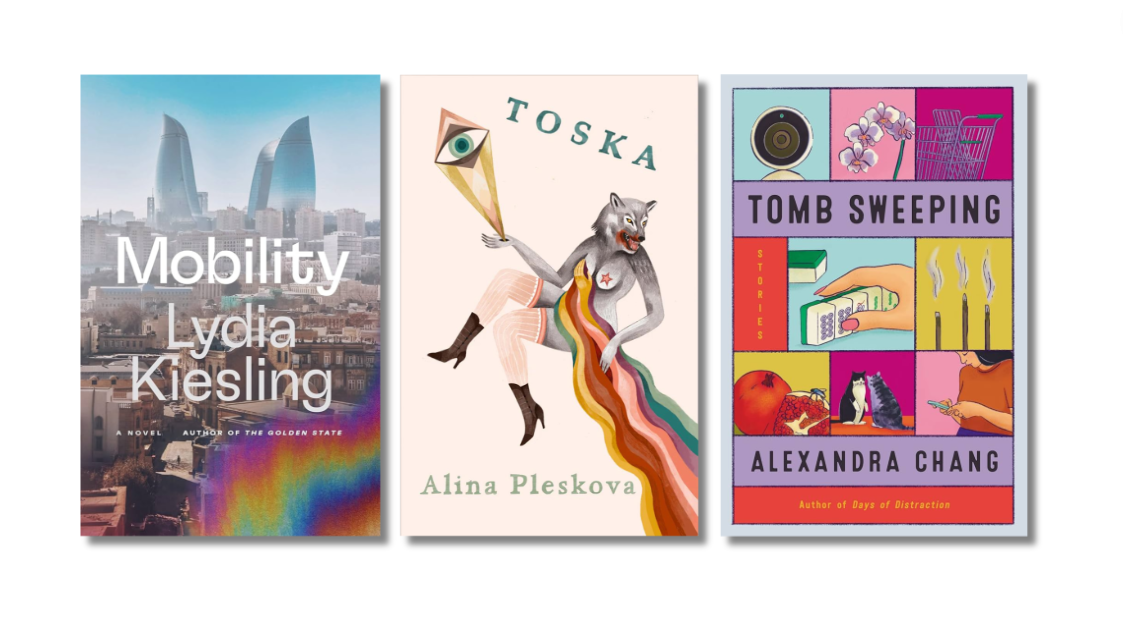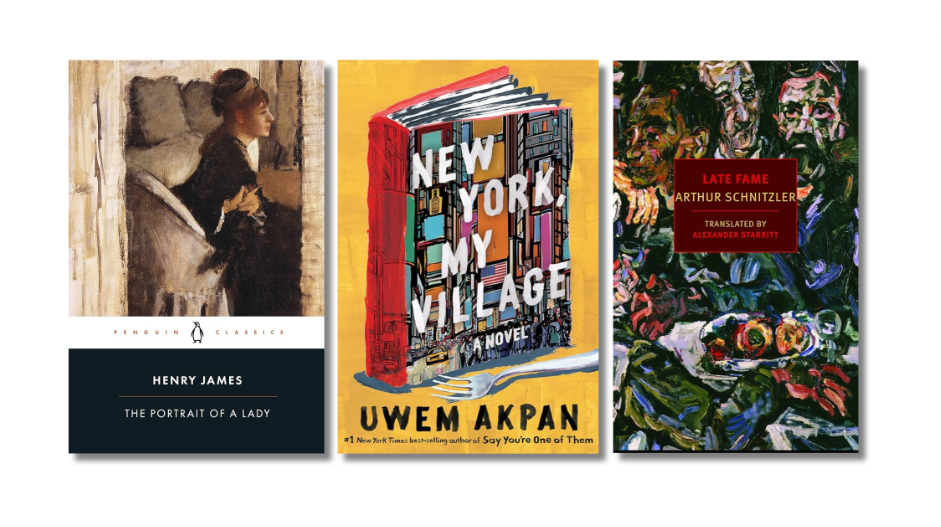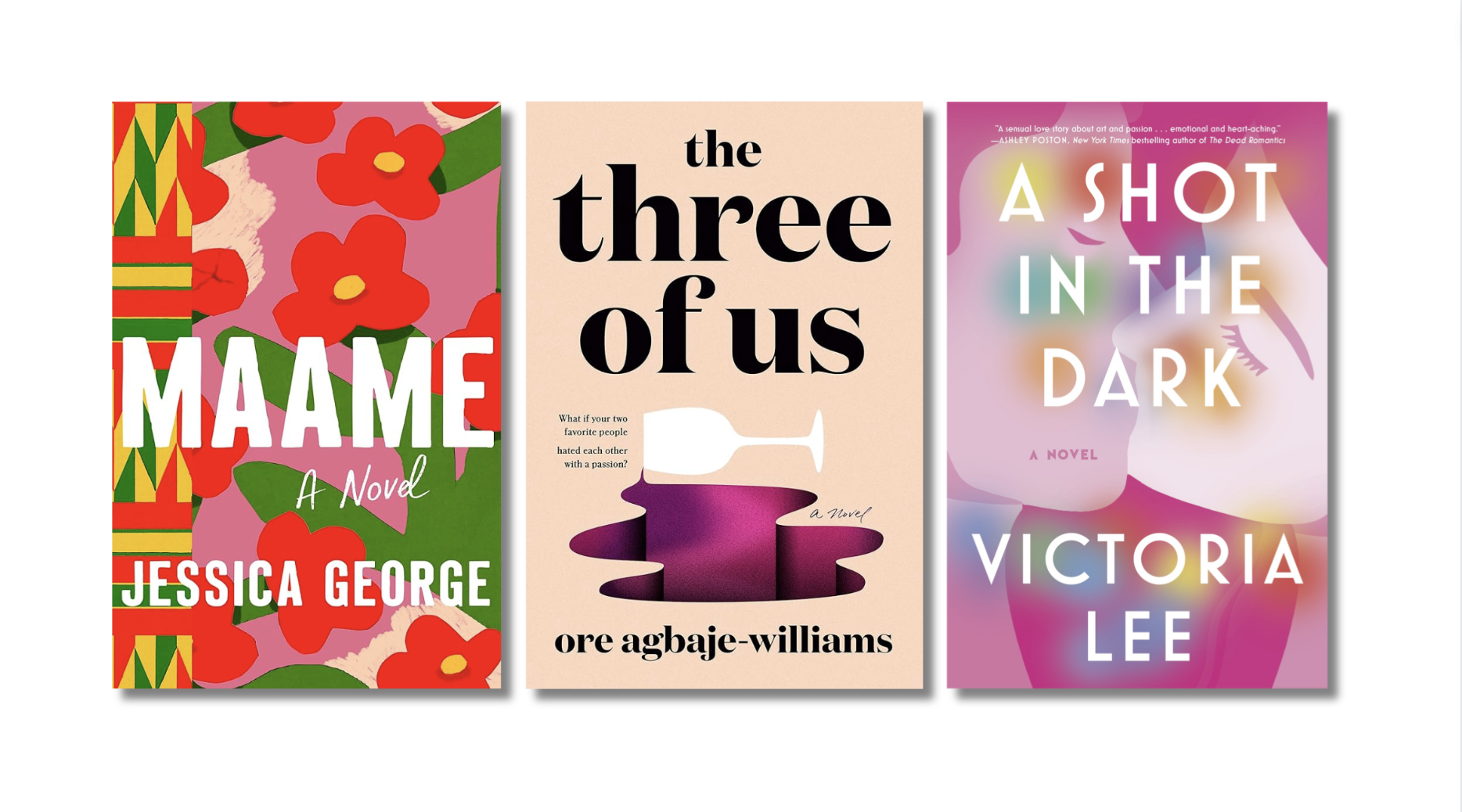I read a lot of books this year (around 100), but if I’m completely honest, I spent more time reading Book Twitter than anything else.
The makeup of Book Twitter resembles the makeup of publishing itself: critics, authors, booksellers, and a mix of people who work in publishing proper. Which is to say that Book Twitter is extremely white. And in a year where even people who love books had an opinion about racism, Book Twitter was patronizingly white.
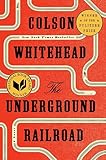
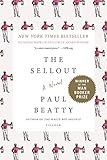 With the election impending, this became the year of performative wokeness. When you see tweets of people praising The Sellout (“it’s funny!”) but not really saying anything about it of substance (“it’s about… race”), you start to wonder if people like the book or just want to be seen as the kind of person who would like Paul Beatty. Maybe it came from a place of white guilt or insecurity, but Book Twitter mostly looked like people saying, “There are bad white people, but I am a good white person because I have read Ta-Nehisi Coates.” When white people vocally identify themselves as Book People, they are assuring everyone around them that they are better than other whites who don’t read. How this declaration of allyship benefits people of color I have no idea, but I’m sure it makes a lot of Book Twitter feel better about itself.
With the election impending, this became the year of performative wokeness. When you see tweets of people praising The Sellout (“it’s funny!”) but not really saying anything about it of substance (“it’s about… race”), you start to wonder if people like the book or just want to be seen as the kind of person who would like Paul Beatty. Maybe it came from a place of white guilt or insecurity, but Book Twitter mostly looked like people saying, “There are bad white people, but I am a good white person because I have read Ta-Nehisi Coates.” When white people vocally identify themselves as Book People, they are assuring everyone around them that they are better than other whites who don’t read. How this declaration of allyship benefits people of color I have no idea, but I’m sure it makes a lot of Book Twitter feel better about itself.
Still, it was easy to overlook the superficial conversation taking place about these books. Hell, I think a lot of us were just glad people were talking about The Underground Railroad at all. But Book Twitter found an even flimsier look after the election. The immediate reaction turned into abundance of tweets reinforcing how important books were in country that was soon to be led by a racist demagogue. I’ll pick on Gary Shteyngart, since he has a good sense of humor:
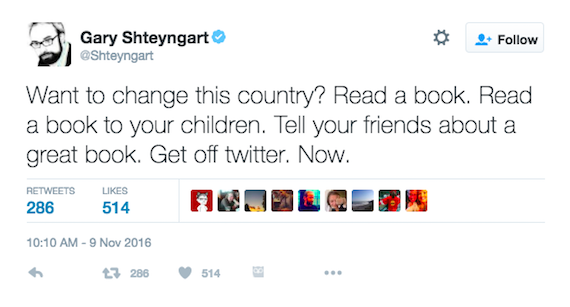
Shteyngart was far from the only person projecting this shallow sentiment. The logic of Book Twitter is: Books are inherently good. Therefore, if we’d all just read more books, Donald Trump wouldn’t have been elected. If you believe that books have the power to do good, you also have to believe that they can do just as much harm. After the election, there was no soul searching on Book Twitter. No one questioned the power structures of publishing. Can we talk about how one of the Big Five publishers is owned by News Corp? Often the publishing of things like Bill O’Reilly’s twisted histories is justified as a means to support literary fiction. But does anyone ask if that trade-off is worth it?
Instead, there was just a lot of self-congratulatory tweets like Shteyngart’s that read like a call to action but really only urged Book Twitter to keep doing what it was already doing. Book Twitter doubled down on its unending positivity and back patting, which amounted to a lot of white people tweeting the equivalent of “All Books Matter.”
At this point, you’re thinking, Does Book Twitter reflect the greater publishing culture? To which I would say: It’s worse IRL.
 If I sound mad, it’s because I’m exhausted. A few months ago, I mostly stopped going to book events. There is a bland sameness that has started to pervade them. You hang out with a familiar group of people — many of whom I like a lot, some I am supposed to like. And if you think Book Twitter is white, try going to a book event. These are almost exclusively white spaces, and being a person of color in them has become increasingly anxiety inducing. You drink with familiar people and strangers and just wait for someone to say something kinda fucked up to ruin your night. Just because my last name is Nguyen doesn’t mean I want to talk about Viet Thanh Nguyen’s The Sympathizer. I am not interested in hearing you talk about how attractive an Asian-American debut novelist is. And for the last time, as much as I love Ed Park, we really, really do not look alike.
If I sound mad, it’s because I’m exhausted. A few months ago, I mostly stopped going to book events. There is a bland sameness that has started to pervade them. You hang out with a familiar group of people — many of whom I like a lot, some I am supposed to like. And if you think Book Twitter is white, try going to a book event. These are almost exclusively white spaces, and being a person of color in them has become increasingly anxiety inducing. You drink with familiar people and strangers and just wait for someone to say something kinda fucked up to ruin your night. Just because my last name is Nguyen doesn’t mean I want to talk about Viet Thanh Nguyen’s The Sympathizer. I am not interested in hearing you talk about how attractive an Asian-American debut novelist is. And for the last time, as much as I love Ed Park, we really, really do not look alike.
2016 had one bright spot: the National Book Awards. I’ve been to the ceremony five years in a row, and this was the first time I would say it was really good. In fact, it was great, and I’ll credit that to Lisa Lucas, the National Book Foundation’s new executive director. Publishing take note. This is what happens when you put a person of color in charge of something important: it becomes more vital, more relevant.
This year’s host was Larry Wilmore, which is pretty remarkable upgrade over 2015’s dad joke machine Andy Borowitz, and an even bigger improvement over 2014’s Daniel Handler who couldn’t resist making an unbelievably racist joke on stage. Each acceptance speech thoughtfully contextualized what Trump’s America meant for them. “We have seen a black president,” poet Terrance Hayes said, “and we have seen what kind of president comes after a black president.”
Though there were more people of color than I’ve ever seen at the National Book Awards, the room was still mostly white. After Ibram Kendi gave his acceptance speech, Wilmore took the stage again to joke that “the National Book Foundation is woke.” There was laughing and clapping, lots of white people nodding along to show that they got it.
And I wonder if they did get it. That in a room — and industry and community — that is overwhelmingly white, just proving that you aren’t racist isn’t going to be enough.
More from A Year in Reading 2016
Don’t miss: A Year in Reading 2015, 2014, 2013, 2012, 2011, 2010, 2009, 2008, 2007, 2006, 2005

